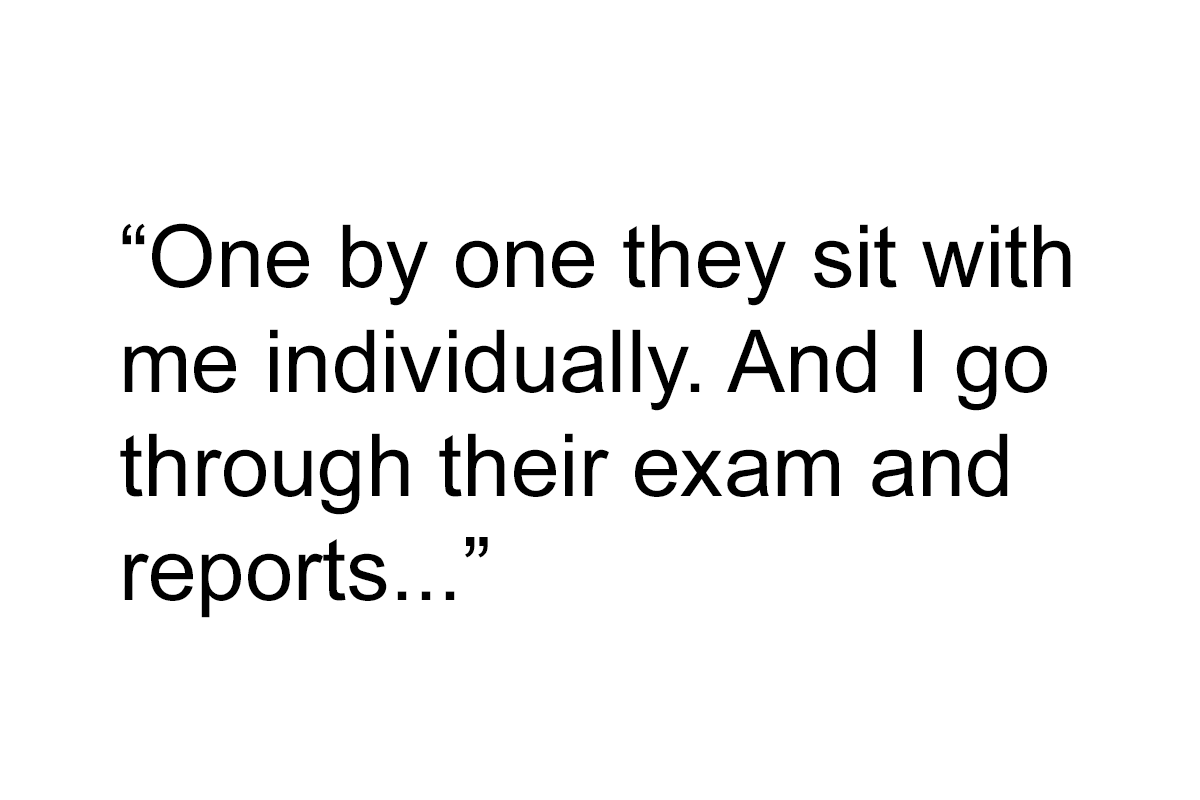
Professor Outsmarts His Cheating Students Who Thought They Had Him Fooled, Sets Up Hilarious Revenge
It’s no secret that most students tend to underestimate the professors they are handing their papers to. You see, with years of experience, a well-trained natural lie detector and AI tools for plagiarism, it’s virtually impossible to deceive them. Unless you want to play with the tail of a lion.
In that case, you may end like the group of students from this story on r/ProRevenge, with a failed test, ruined vacation, wasted money, “bored to death and have nothing to show for it.” The story comes from a cancer researcher and guest professor at a university’s school of medicine who goes by the handle u/CmSrN. For part of his module’s grading, the students were asked to submit two reports.
“As I was grading the reports I noticed a small group of students who found reports from previous years online and literally copy+paste those reports, changing only their name,” the professor wrote, calling it “a facepalm moment.” As you can suspect, they did not pass.
But when the time had come to book an appointment to review their grades, the author had prepared a trap for them to teach them a real lesson about where lies and cheating take you. Hint: not far.
A guest professor at a university’s school of medicine shared a story of how he caught his students cheating and lying right to his face so he taught them a lesson to remember
Image credits: Jeswin Thomas (Not the actual photo)
Image credits: Michael Burrows (Not the actual photo)
It’s no secret that plagiarism is still a great issue found in many universities globally. Although it’s unethical and can have serious consequences for students’ future career, and it also undermines the standards of the institution and of the degrees it issues, many students still do it.
Out of a survey of nearly 64,000 students in American universities, 38% of students admit to “paraphrasing/copying a few sentences from a written source without footnoting it.” Merriam-Webster defines plagiarism as the following: “to steal and pass off (the ideas or words of another) as one’s own; to use (another’s production) without crediting the source; to commit literary theft; to present as new and original an idea or product derived from an existing source.”
Meanwhile, University of Oxford refers to plagiarism as a breach of academic integrity. “It is a principle of intellectual honesty that all members of the academic community should acknowledge their debt to the originators of the ideas, words, and data which form the basis for their own work,” the university explains on its official website. “Passing off another’s work as your own is not only poor scholarship, but also means that you have failed to complete the learning process.”
Many people supported the professor and his unorthodox method of teaching the students a lesson about cheating
While other people were not that impressed with the professor’s revenge and questioned whether it was the right way
422Kviews
Share on FacebookY'all forgetting that these students are in MED SCHOOL. You know what happens when people successfully cheat their way through med school? They become doctors who kill patients through incompetence or indifference.
And not just med school - they were specializing in ONCOLOGY. This is how cancers go undetected until it's too late.
Load More Replies..."If it was boring the first time, it won't get better the second time." Also: I know some folks are saying that "it's too much if it impacted their families." Whole lotta nope! They are the ones who instilled that entitlement! I've had to sit down with those parents (after they get written permission) and explain how their adult children cheated, didn't do their work, and now were expecting to be graded differently because of the impact it would have. Nope! Your little darling is going to lose their scholarships because of their lazy and entitled attitudes. If it is that important, then they should have done it well in the first place!! I point blank tell my students: if you feel the need to cheat, talk to me so we can make a plan to get you caught up. No sympathy for those who cheat and think they can get away with it.
That sentence rubbed me the wrong way as well... the arrogance, the GALL to suggest that the family responsible for burdening the world with such a despicably selfish imbecile, would or should somehow be exempt from the consequences of their actions? NO. F**K, NO. NEVER.
Load More Replies...All students know the timetable usually a year in advance in EU. Like from September until June. You also know the exam periods and when the grades come out. There's policies in place for discussing grades also marked in university calendar. It's students responsibility to know these dates and to consider these when booking holidays. I have skipped few family holidays due to college, but it was important to pass on first round and not repeat rather than holiday. Or even better study, present and if you fail at least you weren't a cheat! Usually when you get caught cheating you are BANNED from enrolling into universities it can be years before you may reapply. I have no sympathy for students, and lecturer has a right to pump grades if overall class results go down due to cheaters. You get points for trying and showing motivation to learn. I am onto my third degree and plagiarism is zero tolerance, you're out! Booking and going on holidays is a choice, so is passing modules. Priorities.
Y'all forgetting that these students are in MED SCHOOL. You know what happens when people successfully cheat their way through med school? They become doctors who kill patients through incompetence or indifference.
And not just med school - they were specializing in ONCOLOGY. This is how cancers go undetected until it's too late.
Load More Replies..."If it was boring the first time, it won't get better the second time." Also: I know some folks are saying that "it's too much if it impacted their families." Whole lotta nope! They are the ones who instilled that entitlement! I've had to sit down with those parents (after they get written permission) and explain how their adult children cheated, didn't do their work, and now were expecting to be graded differently because of the impact it would have. Nope! Your little darling is going to lose their scholarships because of their lazy and entitled attitudes. If it is that important, then they should have done it well in the first place!! I point blank tell my students: if you feel the need to cheat, talk to me so we can make a plan to get you caught up. No sympathy for those who cheat and think they can get away with it.
That sentence rubbed me the wrong way as well... the arrogance, the GALL to suggest that the family responsible for burdening the world with such a despicably selfish imbecile, would or should somehow be exempt from the consequences of their actions? NO. F**K, NO. NEVER.
Load More Replies...All students know the timetable usually a year in advance in EU. Like from September until June. You also know the exam periods and when the grades come out. There's policies in place for discussing grades also marked in university calendar. It's students responsibility to know these dates and to consider these when booking holidays. I have skipped few family holidays due to college, but it was important to pass on first round and not repeat rather than holiday. Or even better study, present and if you fail at least you weren't a cheat! Usually when you get caught cheating you are BANNED from enrolling into universities it can be years before you may reapply. I have no sympathy for students, and lecturer has a right to pump grades if overall class results go down due to cheaters. You get points for trying and showing motivation to learn. I am onto my third degree and plagiarism is zero tolerance, you're out! Booking and going on holidays is a choice, so is passing modules. Priorities.
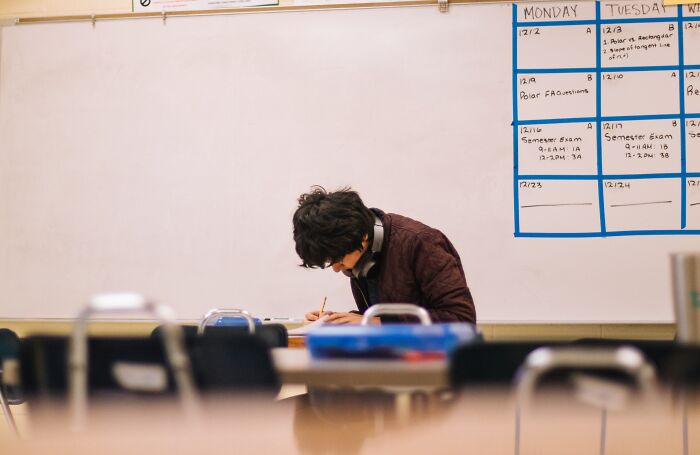
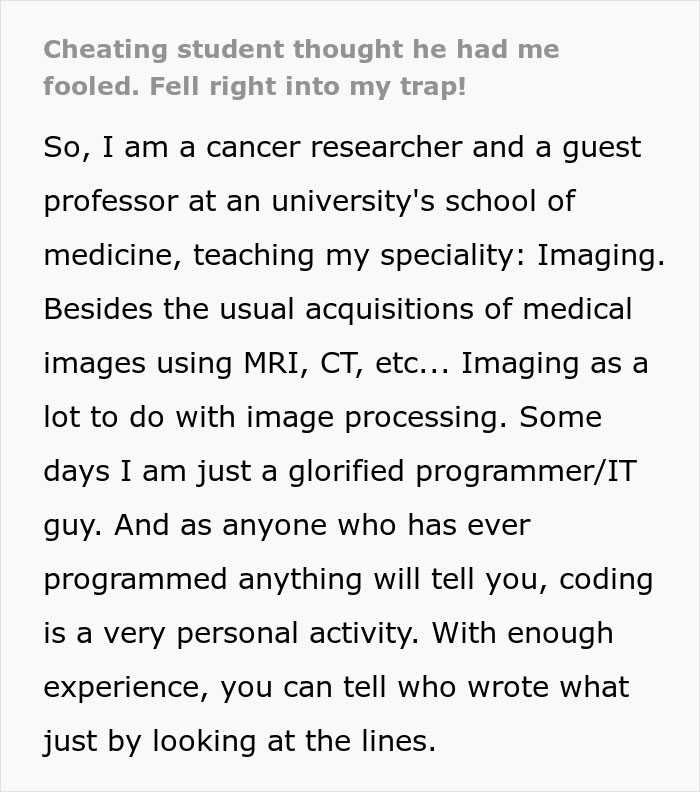
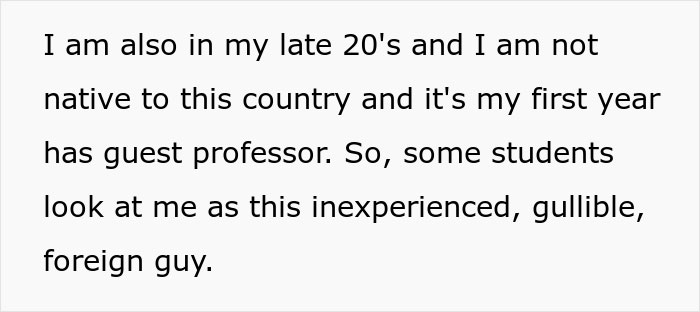
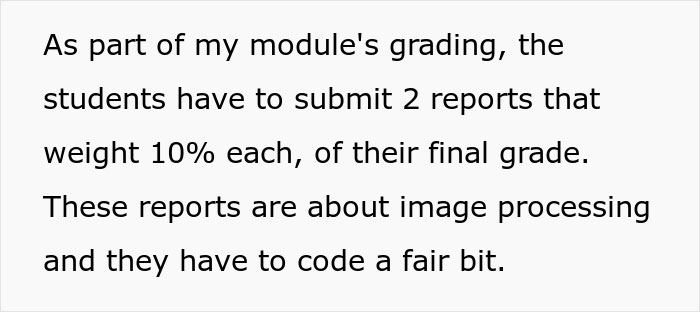
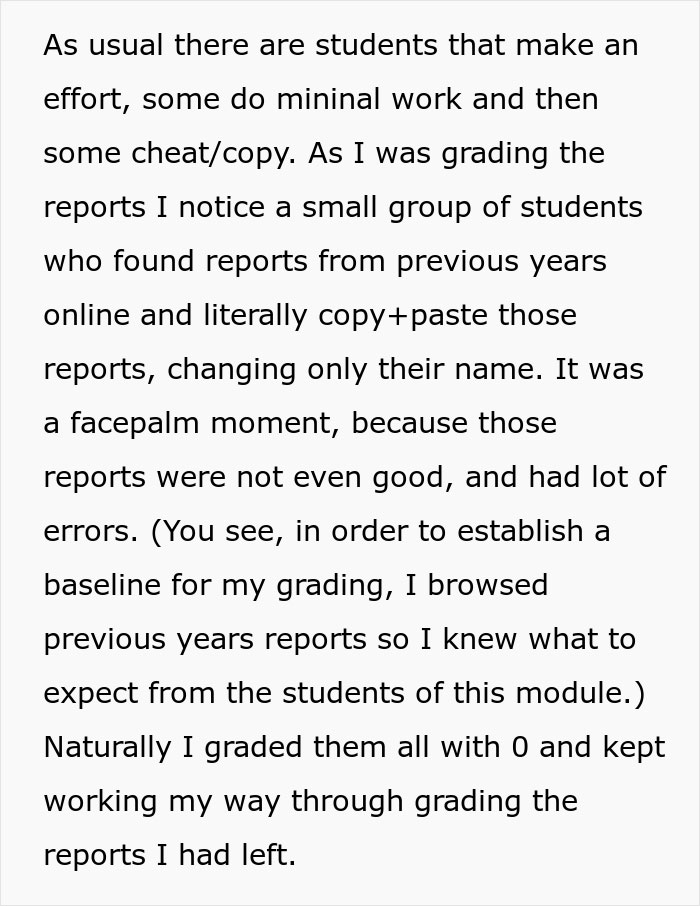
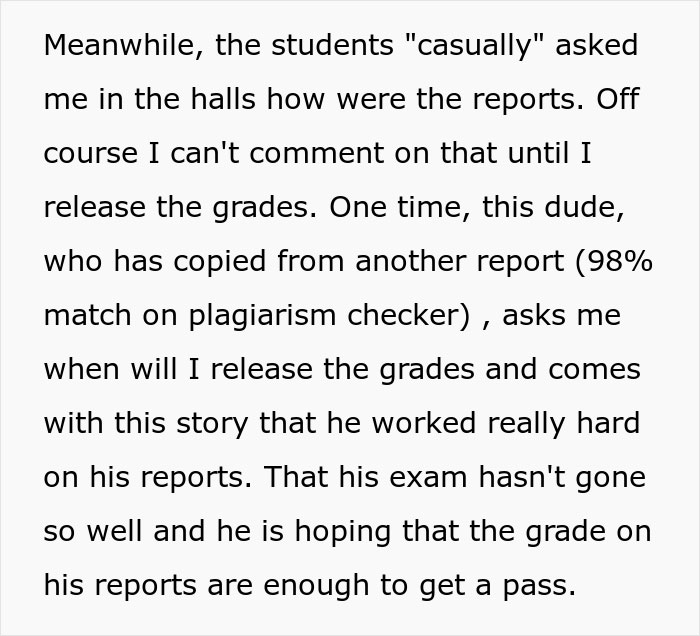
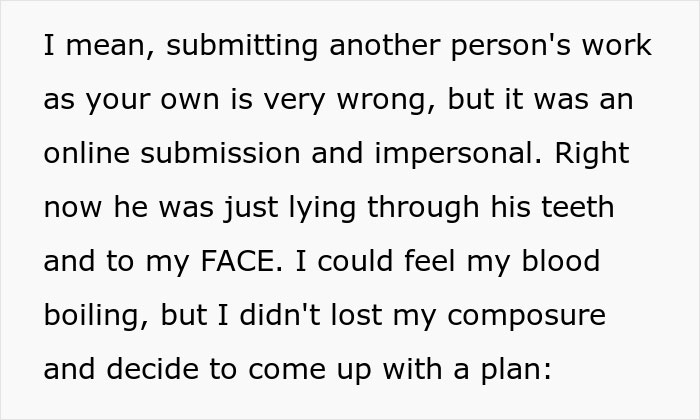
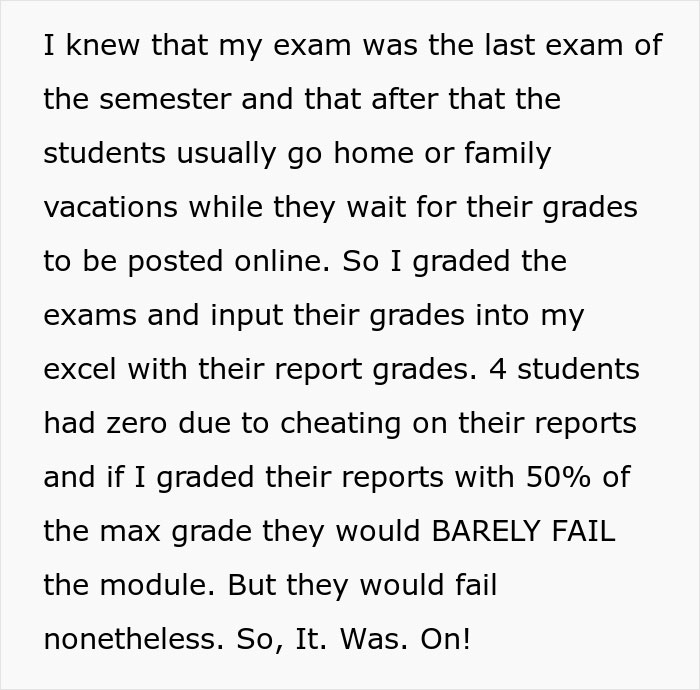
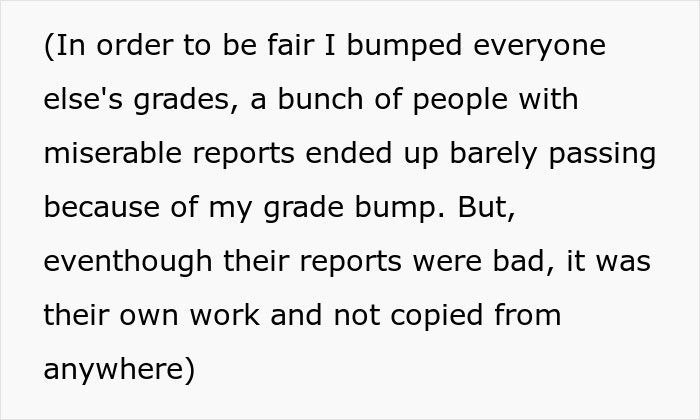
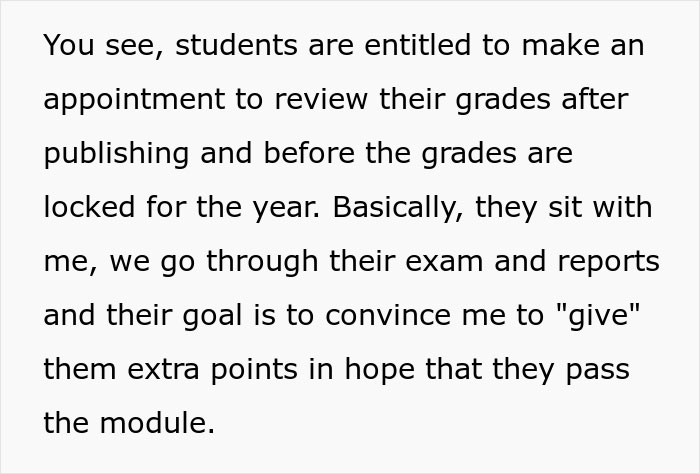

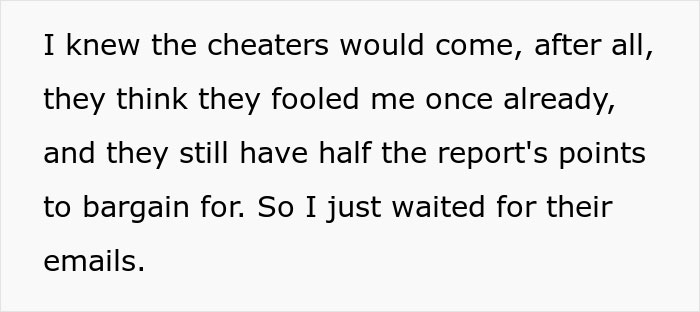
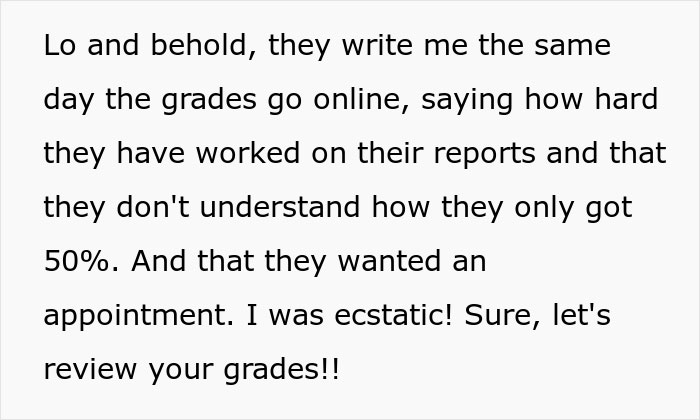
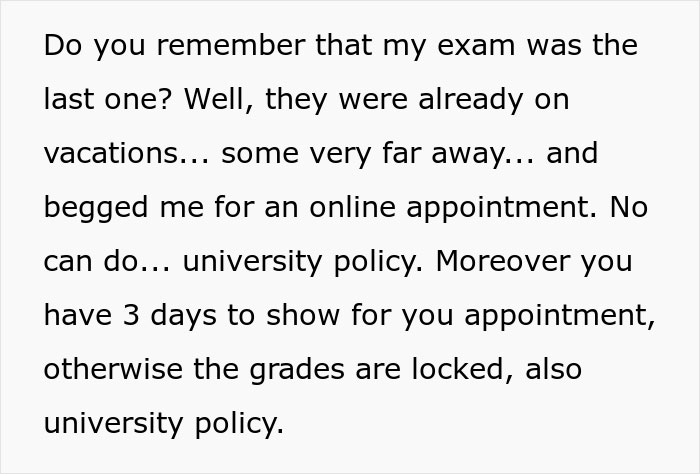
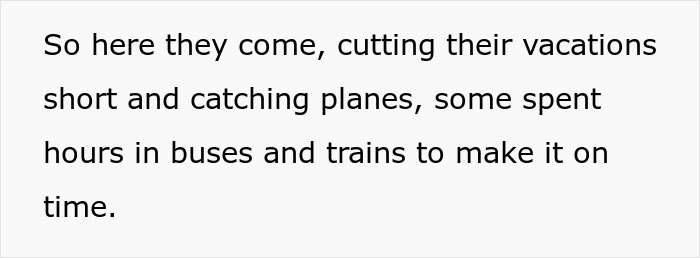
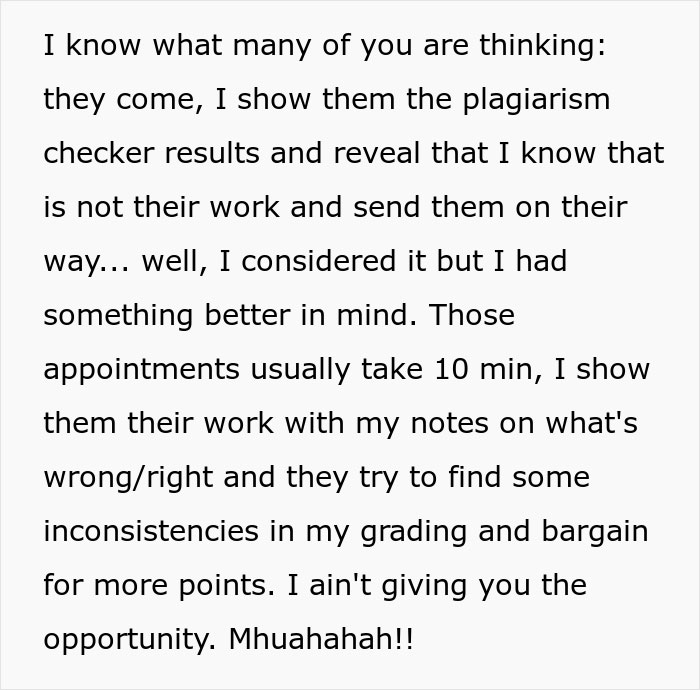
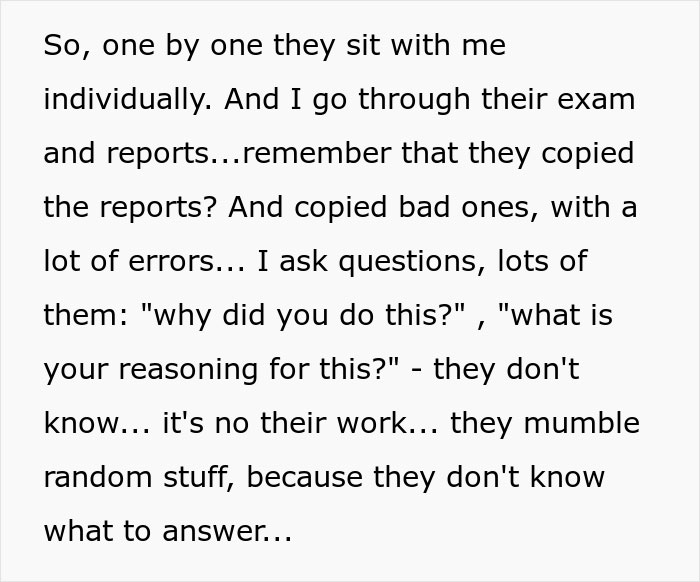
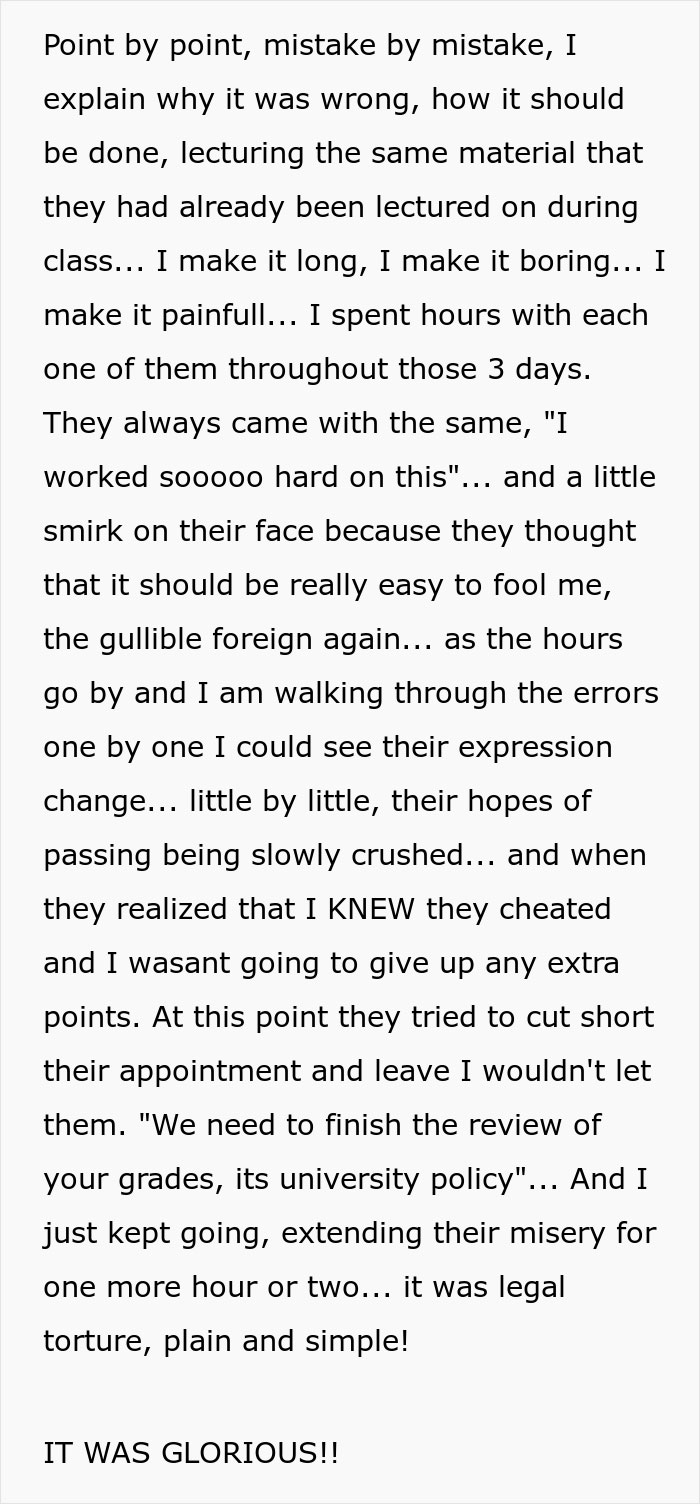

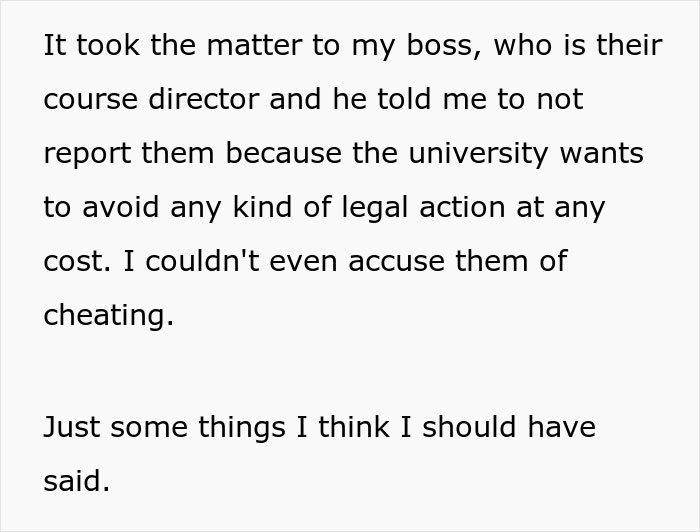
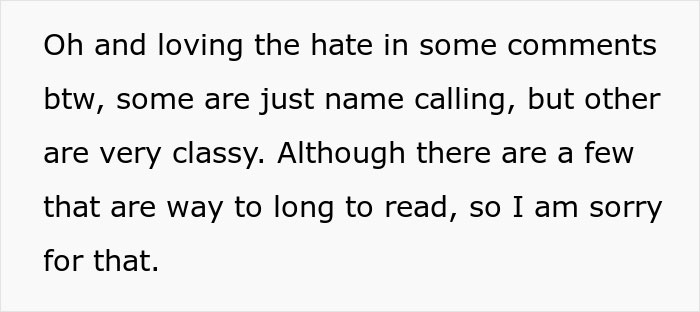
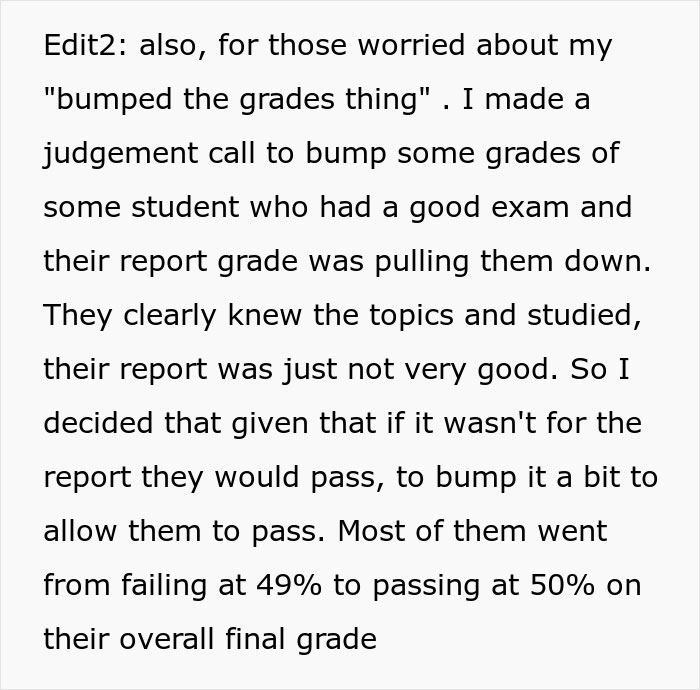
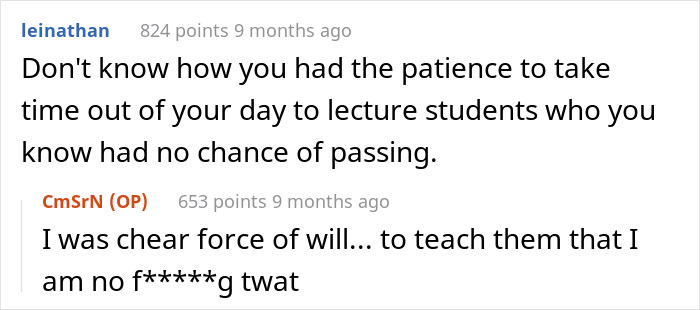
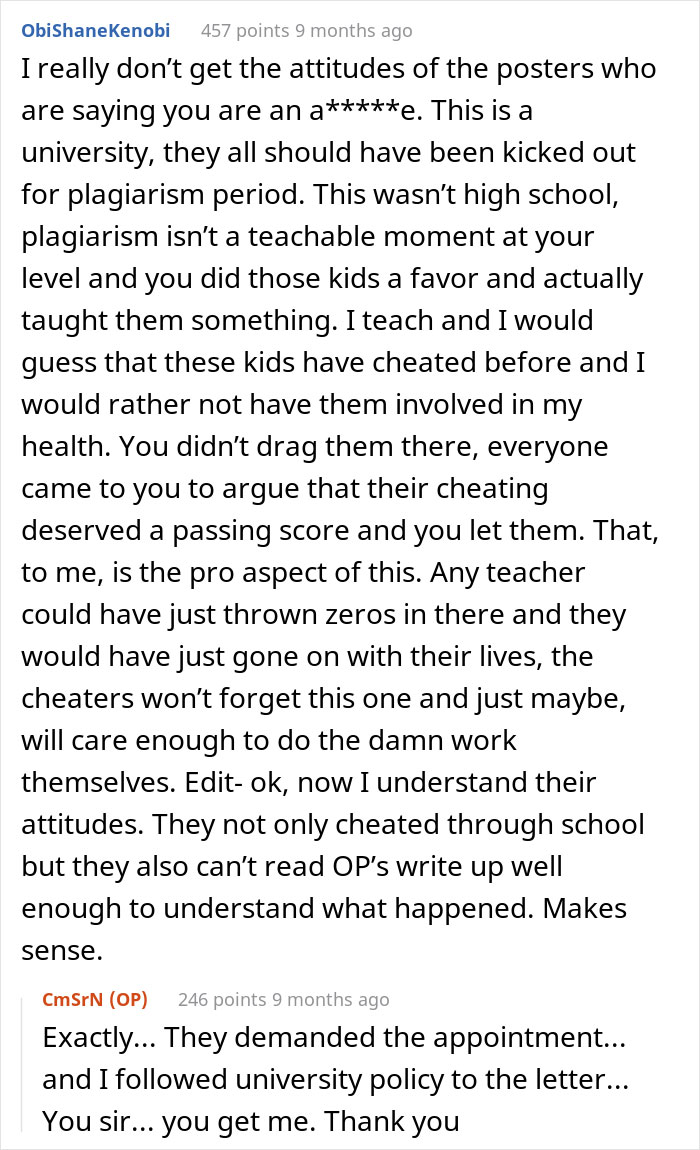
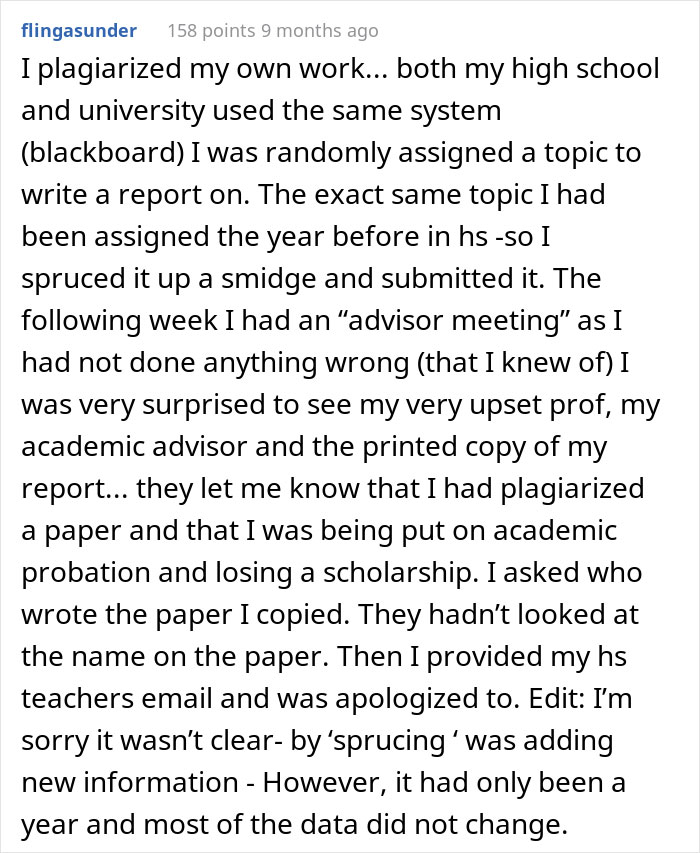
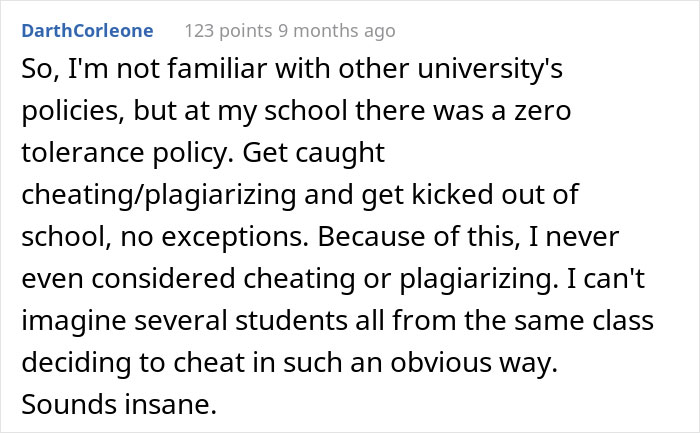



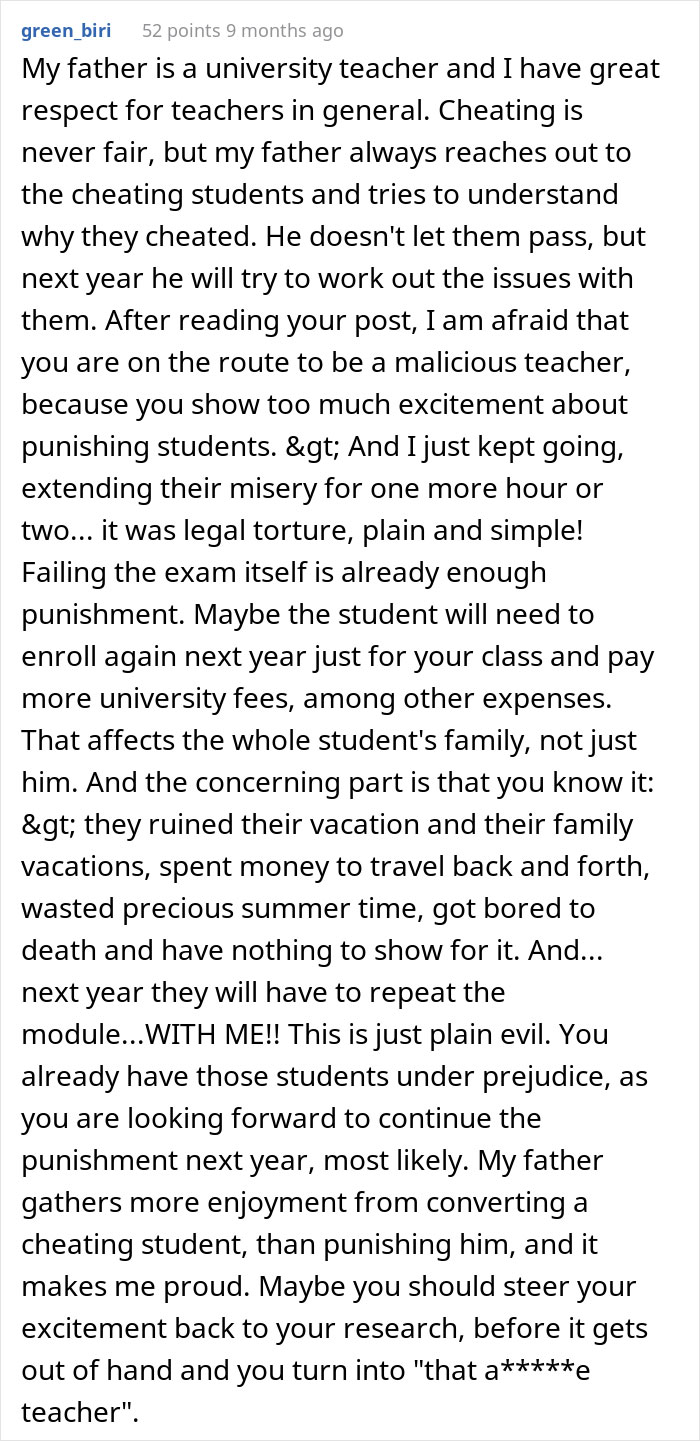
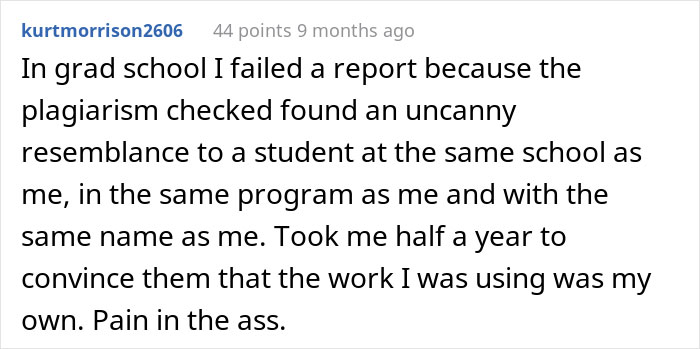
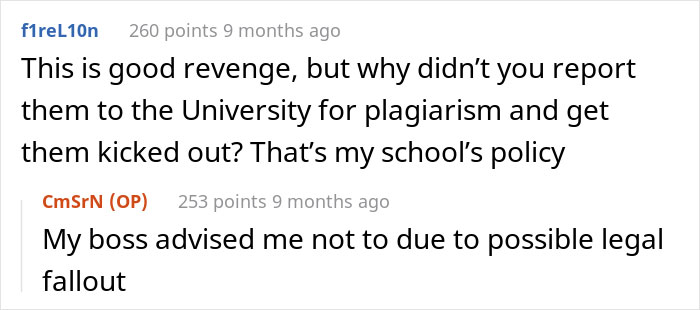

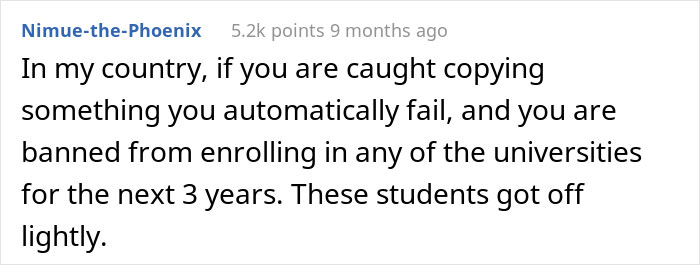

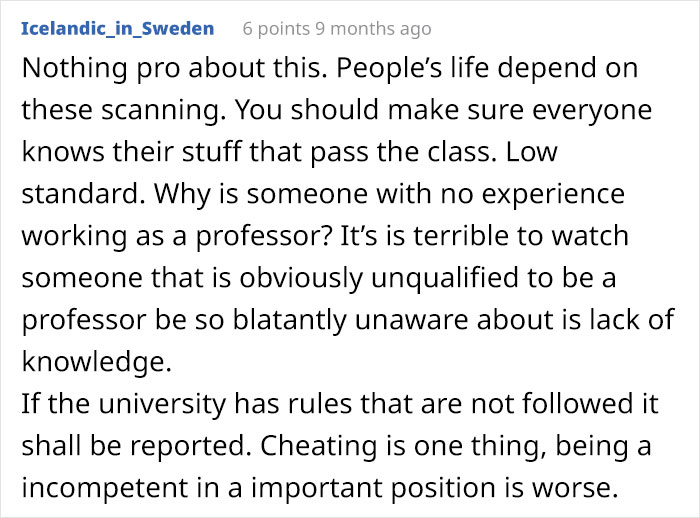
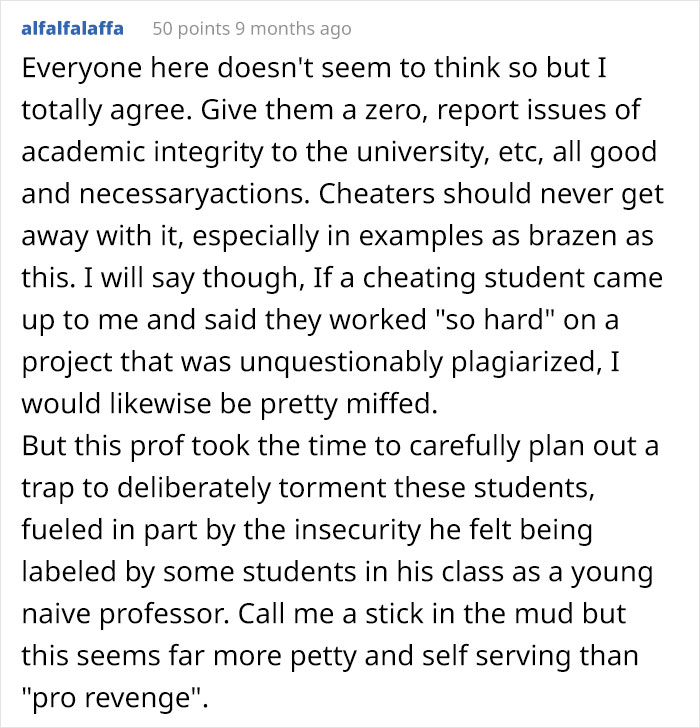




87
53